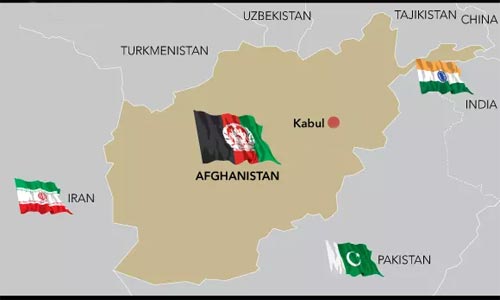Time has come for the Governments of Afghanistan, India and Iran, the Islamic Republic, to start discussion about formation of a Collective Security Mechanism (CSM) among the three countries against attacks and infiltration in their respective countries by terrorist groups harbored, trained and supported by military establishment of Pakistan. Recent suicide attacks in the Kashmir, India and in Iran, which killed more than seventy security personnel in total, are eye openers for countries bordering Pakistan with respect to prevention of future attacks from that country. Afghanistan has been victim of terrorist attacks and proxy wars since last forty years and they have linkages to Pakistan. This episode continues to take immense toll on social, economic and security sectors in the country. Emboldened by perceived successes in Afghanistan, Pakistan military is reportedly advancing its interests and agendas by using these terror groups as proxies in other countries, including India for a long time too, and now Iran. Pakistan has weak central Government and many centers of power, which include its powerful military and its intelligence agency ISI, militant groups and to some extent the civilian federal Government. History has proven it times and again that simply putting pressure through official channels on civilian Government of Pakistan by lodging complaints or summoning ambassadors will only give face value and scratch surface of the matter, but will not lead to any tangible results.
It is, therefore, time to construct own or regional defensive mechanisms that can ward off any misadventure by terrorist elements harbored or originated in that country. Establishment of a joint, Collective Security Mechanism (CSM) among the security and defense organizations of Afghanistan, India and Iran can be the only effective way forward towards building defenses against such misadventures. Putting in place CSM, which might also include mutual cooperation, vision for collective and shared threats and rapid response mechanism to any terror attacks, will dampen ability of terrorist organizations and their supporters including state support and will force masterminds of such attacks to think twice before daring to proceed on such misadventure in future.
Upendra Baghel, a researcher on Afghanistan and regional security issues, is of the view that regional coalition consisting of India, Iran and Afghanistan should approach the United Nations Security Council to take necessary measures to maintain international peace and security, if they have reasonable grounds that situation in Pakistan is a serious threat to region and the current situation is creating international friction. India has accused Pakistan for sponsoring terrorism in Kashmir and the recent vehicle borne suicide explosion created massive anger and anguish at every level in India urging the government to take revenge. Prime Minister Modi said that the time for talks with Pakistan was over and the ‘’blood of the people is boiling’’. He said that the forces behind the terrorism will definitely be punished. Iran also warned Pakistan it would pay a heavy price for allegedly harboring militants. Afghanistan has already complained to the Security Council on the issue of travel of Taliban and their scheduled meetings in Islamabad, which had been put off. In 2017, US President criticized Pakistan for providing ‘’safe havens to terrorist organizations’’ and warned Islamabad. Following it, the US administration withheld aid to Pakistan. The right to self-defense, including the right to combat terror, is a corner stone of international law. These countries may exercise this right and use proportionate force lawfully. These are sufficient for the Security Council to investigate the situation in Pakistan in order to determine further course to avert frictions and armed interventions in the region. The outcome of these may prompt the Security Council to resolve the dispute peacefully and support the international community in their resolve to fight terrorism.
Upendra elaborates that ‘supporting Pakistan in recalibrating their anti-terrorism measures and launching reforms in Pakistan security sector followed by governance will reestablish international peace and security and pursuant to it, the Coalition may request the Council to establish ‘monitoring mechanism’ and ‘support linked to reforms and sanctions for breach’.
It is, therefore, time to act in alliance to keep our people, our country and our values safe. Though there might be some bumps on the road to achieving this goal, for example conflicting interests of our international partners including the US position on Iran, but these matters could be separated in a way that regional cooperation taken with a view to eliminate terrorism and clean up this whole region from the scourge of terrorist attacks and, which would eventually result in destruction of safe havens of these terrorist groups would bode well for all. It is advisable that Government of Afghanistan and India start looking at opening this discussion with the US, Russia, UK, France and China and NATO member countries. We, the countries of Afghanistan, India and Iran, can diagnose and act much better against our enemy, ‘terrorism’ in this region than our international partners, and the reason is that we are living here and understand the nature, tactics, geography and local knowledge. A regional CSM body intertwined with UN mechanism, which is tasked to protect and defend our three countries, is in the interest of the region in particular and the world in general.
Home » Opinion » Why a Regional Collective Security Mechanism (CSM) Shall Be Established
Why a Regional Collective Security Mechanism (CSM) Shall Be Established
| Mohammed Gul Sahibbzada

